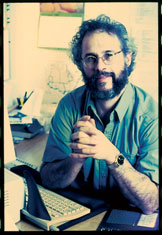By Steve Oppenheimer
(March 2001)
Readers of this magazine are, in general, an exceptional group of people. According to our surveys, most EM readers are well educated, and many of you have achieved at least some success in your businesses, music related or not. Given the magazine’s subject matter, it’s reasonable to conclude that most of you have musical talent and an above-average affinity for technology. And obviously you have great taste in magazines!
Much of what is good in your musical life probably happened partly because of your own hard work and partly because people helped you. Perhaps family, friends, teachers, or local musicians supported your musical aspirations, helped you get started, and showed you the ropes. Someone showed you how to play a simple tune, helped your first band land its maiden gig, and urged you to get started in recording. Friends and mentors explained the basics of stagecraft, showed you how to wire your studio or stage rig, and turned you on to EM. Those mentors and supporters may have had a variety of motives, but in many cases they helped simply because they felt it was the right thing to do. Most likely they remembered people who helped them along their way.
The best way to thank your benefactors – besides saying thanks privately and occasionally crediting them publicly – is by helping others. In addition to your experience with music technology, you undoubtedly have other useful skills. Use them to help someone else in your community.
You can contribute money, of course. Sometimes just 10 or 20 bucks can make a big difference to a music program or a nonprofit organization. But donating your time is even cooler. America’s greatest strength is arguably its citizens’ willingness to volunteer for good causes.
Therefore, I urge you to get involved in something that benefits society, whether music-related or not. Think about your interests and use your skills, or learn new ones, for a good cause. You can make a difference by playing occasional free gigs for charity events, which is something all bands should do. But you can go beyond that. Your recording skills or live-sound engineering skills could be useful to a charitable organization. (I found I could contribute significantly in that way.) Perhaps you can find ways to use design skills you acquired when creating your Web site.
Of course, you can work on big social issues like feeding the hungry, but you also can improve your community in more subtle ways. You don’t have to join an organization to show a child how to tune a guitar, help a senior citizen or disabled person learn to use a computer, or teach a band that is eager to improve how to polish its act. Just pass the knowledge on.
Yes, you will encounter frustrations, even when helping people who sought your help. But your contributions can be far more important than you realize. And you can’t beat the “job” satisfaction; in my experience, the good you do will indeed come back to you tenfold.
